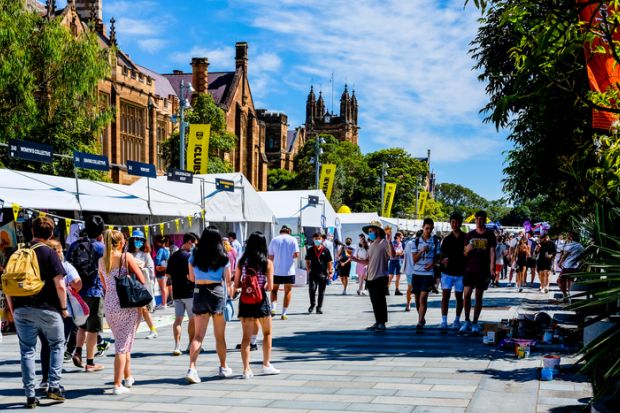Australia’s proposed caps on international enrolments will exacerbate the problem they are supposedly designed to solve by undermining the construction of student housing, the country’s oldest university has warned.
In a submission to the federal Department of Education, The University of Sydney says its “discretionary income” – mostly drawn from overseas students’ fees – underwrites not only its teaching and research but also capital works including “accommodation infrastructure”.
The submission says Sydney is creating between 2,000 and 3,000 additional student bed spaces over the next five years, having spent A$220 million (£115 million) on accommodation since 2015. These efforts are now at risk because the proposed caps, ostensibly designed to relieve housing shortages, undermine investors’ ability to predict students’ accommodation needs years in advance.
“Already, we are hearing reports that developers of student accommodation facilities may walk away from new projects,” the document says. “Typically, a five-year timeline is required from site selection to opening of a new student accommodation facility.”
In a strongly worded submission, the university says the government has “not learned the lessons from the past” about ill-fated attempts to micromanage university places or manipulate students’ subject choices.
It says no attempt has been made to assess the impact of “arbitrary enrolment limits” on a university funding model that is “heavily reliant” on international students’ fees – a dependence fostered by Canberra.
Successive governments have “actively encouraged” universities to increase their foreign enrolments and given them little choice by scrapping schemes such as the Education Investment Fund, which helped bankroll research and teaching facilities.
The submission says governments have also exacerbated the problems Canberra says it is now trying to solve – the post-pandemic “spike” in net overseas migration and the “integrity challenges” in international education – through “deliberate policy decisions” such as the sustained removal of the limit on students’ working hours.
The proposed caps would be the “most significant change” to Australian international education since Canberra began encouraging foreign enrolments “at scale” in the late 1980s, the submission says.
Sydney vice-chancellor Mark Scott also warned of “very damaging flow-on consequences for local communities, jobs and economic growth”. He said the department should “consider changes of this magnitude extremely carefully”.
The caps should at the very least be deferred for a year, he said, because universities were “already well advanced” in offering places for 2025. “Acceptances are starting to flow in, with students making deposits towards their fees, accommodation and other arrangements.
“Limits on 2025 enrolments will be challenging for universities to implement without seriously disrupting thousands of students and potentially putting us in breach of contractual obligations.”
Sydney enrols well over 35,000 foreign students, more than any other Australian university. They provided 44 per cent of its income last year, with fees from Chinese students alone constituting 35 per cent of revenue.
The University of Melbourne also said the caps should be delayed until at least 2026 and negotiated at least 18 months in advance. Implementing caps in 2025 would “wreak havoc on the sector”, damage Australia’s reputation and cause “significant” job losses, it warned.
Deputy vice-chancellor Michael Wesley said the caps were unnecessary because the number of student visas issued had already “decreased dramatically” since last year. “These caps are penalising the sector for a temporary, larger-than-expected increase in student numbers due primarily to the pandemic lag effect,” he said.




